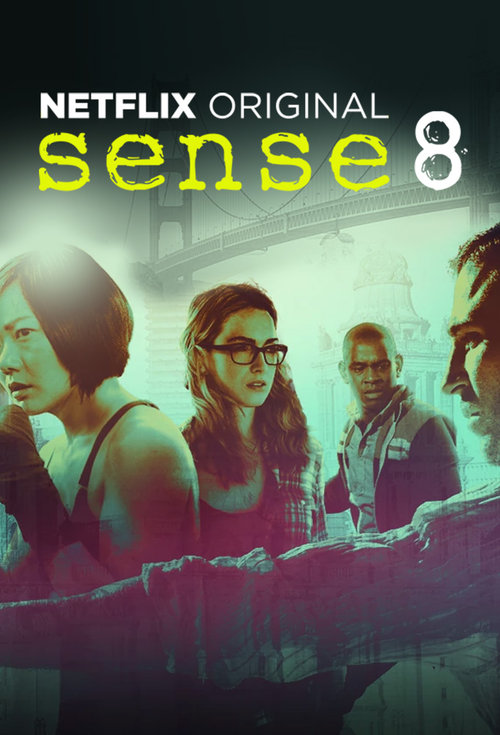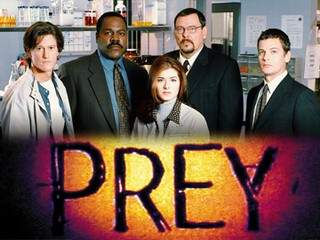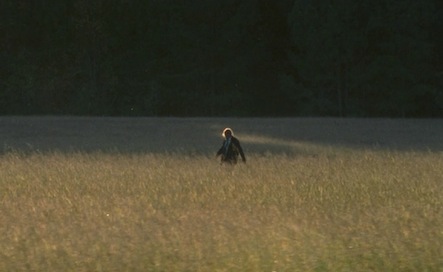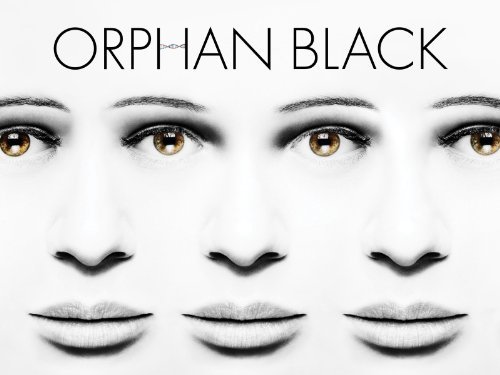(In)Sense8
Spoilers. Duh.
When Caitlin Sweet, Mistress of the Character-Based Narrative, complains that a TV show wallows too much in characterization— worse, that it needs more science— you know a screenwriter somewhere has seriously missed the boat.
Over the weekend we binged on this Sense8 show everyone’s been raving about, curled up on Big Green with cheese and wine and Lexus (Kelly was supposed to join us, but was abducted by an employer with urgent deadlines to meet). Despite the glowing reviews, I approached it with a combination of hope and dread; it was, after all, the love child of J. Michael Straczynski and the Wachowski sibs, three bright flawed gems of the genre. Straczynski’s Babylon 5 was consistently brilliant in scope and ambition but only intermittently so in execution; the Wachowskis, after proving they could rock both indie (Bound) and SF (The Matrix), squandered their enormous cred on increasingly lame sequels and standalones. Sense8 might represent a return to form, or the last gasp of three has-beens clinging to each other as they circled the bowl.
I watched the first episodes with a sense of relief. The premise was intriguing. The performances were pretty good (some of the writing and characterizations were a bit clunky, but nobody who cut early B5 or Next-Gen the necessary slack can begrudge Sense8 a few episodes to find its feet). It was cinematically beautiful; and given the Wachowskis’ involvement, I don’t have to tell you the fight scenes rocked. I didn’t even mind that the science seemed shakey, at least to start with; only one of the characters had any kind of science background, and that was in pharmaceuticals. Eight minds scattered across the globe, suddenly finding themselves linked one to another? You’d expect them to figure out the rules through trial and error (which they did), but they’re not gonna have a clue about underlying mechanisms. Any speculation they indulge in is going to be loopy pretty much by definition. I was happy to wait for explanations: happier than I would have been if, for example, one of the newly-awakened “cluster” just happened to be a quantum neurologist who could exposit the technical specs by the end of the pilot.
And Jesus, wasn’t it nice to see such a diverse range of characters in a show whose premise doesn’t hinge on diversity and/or marginalization? Not one of those self-conscious shows about being trans or gay or black or viking, but a show about something else entirely in which the characters happen to be those things because that’s just the way folks are? That was pretty great.
In fact, the further the season progressed, the more apparent it became that that was maybe the only great thing about it.
The idea that there are two distinct and competing species of modern Humans is a very cool one, ripe with SFnal potential. (It’s already been done on TV, in fact, back in 1998— in a pretty good, lamentably short-lived series called Prey.) Judging by the first season, though, Wachzynski don’t seem especially interested in the biological, ethical, or philosophical implications of their premise; they seem focused on character, almost to the exclusion of logic. Caitlin likens the series to Lost— a show which drew in viewers with three-dimensional characters and deep biographical back stories, only to alienate them when it failed to pay off all that setup in any coherent way.
Just how disinterested were Sense8‘s creators in exploring the ramifications of their own creation? You can get a pretty good sense in Episode 10— “What is Human?”— when one of the newly-awakened Sensates wonders, with understandable skepticism, how it’s possible for two distinct species to look so indistinguishably similar, to coexist in the modern world without everyone being aware of the fact.
“Evolution is frugal”, explains the show’s expository guru. “One small chromosome here or there and you walk on two legs instead of four … we are closer to humankind than the bonobo is to a baboon.” Except a single human chromosome contains up to 2000 genes, which is not exactly a “small” amount of variation (I’m guessing that “gene”, in fact— not chromosome— was the word the screenwriters were groping for). And if you want to illustrate how two distinct species can resemble each other to the point of indistinguishability, you might want to go with a different comparison than:
Okay, you might say. So Hollywood writers can’t be bothered to learn the difference between a gene and a chromosome. It’s not as though those guys are especially renowned for their biological erudition anyway. If you’re feeling generous you can write these shortcomings off as the equivalent of a typo, nothing for anyone but compulsive nerds and antisocial biologists to get upset about.
But it goes deeper than that. It’s not just that Sense8′s plays a bit loose with its techspeak; it’s that the show’s premise contradicts its own plot.
Consider: we’re told that the mind-hive state is baseline, that back in the Pleistocene the whole species was connected this way. We modern humans are a stunted offshoot, a mutation that lost the psychic interface; this gave us a competitive advantage allowing us to take over, because “killing’s easy when you feel nothing”. (This is presented as informed speculation by one of the characters— hence not definitive— but Straczynski’s on record stating that them’s the rules, so consider it canon.)
Right there I have problems. Sure, losing mind-to-mind empathic contact makes it a lot easier to kill without remorse— but there’s more to murder than attitude. There’s the fact that your supposedly-disadvantaged victims are still part of a telepathic network that allows them to be in a dozen places at once, that lets them instantaneously pool skills and knowledge and resources (and apparently muscle tone, given that untrained noncombatants become kick-ass killing machines when linked into the mind of a martial-arts expert). Every time you try to take out one, you’re actually fighting many. You were once part of such a network; but you traded it all away in exchange for a muffled conscience.
It’s as though someone rewrote the The Walking Dead so that zombieism resulted not via some contagious pathogen, but by a process of random mutation. A cosmic ray tears through a germ cell: a critical base pair flips. One person becomes a walker. One person. They are now a shambling killing machine, utterly devoid of conscience and remorse. And this would in fact give them an edge when it came to slaughtering their former fellows, were it not for the fact that the rest of us still had mass communications, flame-throwers, and F16s. Also, good luck finding a mate who just happened to experience exactly the same random roll of genetic dice in time to found the new lineage.
I fail to see how such a trade-off constitutes an evolutionary advantage.
But okay. Let it slide, accept the premise as one of those single impossible things you’re allowed in an SF story. Let’s see how the implications play out. Sense8′s narrative arc involves an implacable human enemy determined to exterminate the Sensates because they pose a threat to singleton humanity. Straczynzki spells it right out in the Wall Street Journal: “By the end, the eight different characters are functioning as one. And that’s when you realize the danger, because it becomes cumulative. A person with that range of skills and determination is a massive threat to the organization.”
Except the whole series is based on the premise that we rose to ascendancy because we were the tougher, meaner bad-asses, that the mind-linked baseline strain didn’t stand a chance against our capacity for guilt-free murder. Our differing biology gave us a massive advantage over the other guys, who we must now hunt down because their differing biology gives them a massive advantage.
Is it just me, or does accepting Sense8′s premise logically entail rejecting Sense8′s plot? And given that three such admittedly smart folks as JMS and the Wachowskis spent a solid month “working out the rules”, how the hell did that slip by? (And we haven’t even started talking about how different species— even if they are more closely related than bonobos and baboons!— seem able to interbreed without any trouble.)
If I had to guess, I’d say it slipped by because they just didn’t care about that stuff. They were interested in exploring other issues entirely.
But here’s the thing: all that character-dense diversity stuff that Sense8 gets right is nothing to do with any particular genre. Every show should feel this inclusive. Every show should be so explicitly matter-of-fact about genitalia and childbirth. (I might be in the minority here; I’m one of those people who really doesn’t care about the “gratuitous” nudity in shows like Game of Thrones, because objectively the sight of genitals should be no more offensive than the sight of any other body part— and when was the last time anyone complained about all the bare feet you see on television, at times when showing bare feet doesn’t advance the plot at all! It’s completely gratuitous, shown for no other reason than to titillate foot fetishists!
(No: roll those eyes back down. I am not being disingenuous, and I am not being naive. I’m perfectly aware that genitals are shown all too often to titillate— but that’s because the dominant North American society was founded by brain-dead Bible-thumping prudes whose descendants, to this day, howl in outrage at a brief glimpse of Janet Jackson’s nipple while yawning at the latest cop-on-black homicide stats. Does anyone really think we owe the Standards of that Community anything but contempt, starting with sexual prudery and extending right across the board to evolution and climate change?
(But I digress.)
Where was I. Oh, right: Every show should be so matter-of-fact about human anatomy and the gender spectrum. The problem is, Sense8 is not ostensibly a show about those things; and while it’s great to see them get such a basic aspect so completely right, that’s not so much an accolade of Sense8 as it is an indictment of all the other shows out there.
Ultimately, all that progressive groundbreaking stuff is just wallpaper. In terms of actual story, Wachzynski seems mainly interested in giving us another iteration of the usual You’re A Wizard, Harry! wish-fulfillment fantasy: some unremarkable everyperson discovers they can be a medical expert, a lethal combat specialist, an Engine Whisperer, a Black-hat Hacker, or any other item in Batman’s utility belt the plot might call for. Sense8 is basically Buckaroo Banzai spread across eight bodies, played straight and without any of the winking self-awareness. It is— as I put it unto Caitlin— the Bruce Cockburn of televised SF: so earnest, so carefully progressive and inclusive and on the right side of history, that it almost feels treasonous to point out its hamfisted preachiness and incoherent narrative logic. It is— as Caitlin put it unto me— an earthbound Interstellar: visually gorgeous, superficially groundbreaking, but with a shockingly conventional Love Is The Answer moral twitching in its flaccid Hollywood heart.
As the credits rolled for the final episode of the season, Netflix suggested that we might like to try another series with a similar theme: Orphan Black, a little home-grown Canadian number. Netflix was right: Orphan Black is, I think, what Sense8 wants to be. It doesn’t have nearly the production values— like most Canadian television, it feels a bit cheap in the grain and it lacks the geographic scope of the Wachzynski effort. But the spectrum suffuses Orphan Black as it does Sense8: as foundation, not focus. The difference is, something substantial rises from that foundation: a scientifically literate plot that makes sense, that not only understands the difference between genes and chromosomes but plays with gengineering (and religious) tropes in new ways. And Tatiana Maslany’s performance— in a dozen roles so far, and counting— is a wonder to behold.
Sense8 might yet build on its foundation. It might turn from something merely beautiful into something really good. Caitlin and I will keep watching; even as it stands, Sense8 has much to commend it. I suspect it won’t ever be as truly groundbreaking as it aspires to be, though.
It might have been, if only Orphan Black and Prey hadn’t got there first.













I’m really surprised the dominance of nurture over nature didn’t turn you off from Orphan Black.
Have you checked out River? Low budget, not a lot of action, but Skarsgard is good in it and it goes for the current event memes albeit more directly being a {somewhat strange} cop show as opposed to scifi/fantasy.
Started up Jessica Jones but not sure it’s a rec yet. Especially since it appears to be “magic” from what I’ve seen so far, even if/when we’re told it’s evolution or alien help or the original story handwavey something.
I only got around to watching the first episode of Sense8 (I didn’t dislike it, it just fell through the cracks… I might go back to it), but I wonder if your objection about which side has the evolutionary upper hand might be solved with a simple case of the environment changing. Species aren’t “superior”, they’re superior in a given environment, and the environment’s changed.
Prehistoric times, you have a cluster of people who can share their senses and some level of skills. Assume they’re going to be close together because if you’re three days ride from another cluster member, all you’re doing is providing advice and skill help. Okay, so, any individual person might be a good hunter as well as agriculture and clothes weaving and other stuff, and certainly, if there was a threat, like a non-clustered person who can kill them, they can react to it as a group and potentially swarm them with superior numbers, but… the mutant who can isolate and kill each member of the cluster (or maybe save a controllable number as slaves or even less savory purposes… if they could manage to disguise their role in the cluster murdering, they might, at the end, even gain a willing breeding partner who functionally acts as a singleton) has an advantage… he can take all their stuff and still do pretty well. If he’s a capable killer presumably he can also hunt and gather enough to survive. Maybe the clusters, due to their pooled knowledge base, were a little better at making and improving tools, but at this stage, the tools themselves can be stolen and it’s easier to figure out how the previous advancements were done… even if they can’t match their speed of innovation.
A little later in history, maybe clusters still pop up, but because humanity’s spread out more, members of the cluster almost never interact, they might gain some useful addition skills or knowledge from it, but more likely they’ll consider themselves insane because they lack the means to verify their visions.
Today, though, members of a cluster can find each other quickly, and might have one person who’s a soldier versed in what’s considered the state-of-the-art training after millenia of refinement of the theory, another ready to drive a getaway van at the exact moment it’s needed, an expert in a few other fields on hand at any time, and one person ready to google anything else they don’t know at a moment’s notice. They can pull off complicated plans (strategic or economic) on a global scale in real time, or lend physical support to each other when they’re nearby. They’re like corporations, only with the atomic pieces of it being individual sentient beings, rather than executives and middle managers, or fodder for their parasitic requirements, like the lower level employees.
Now, clusters potentially have the advantage (assuming the singletons don’t hunt and kill them, which of course they do), and everything changes. Singletons are catching up on the ‘universal knowledge’ and ‘global impact’ what with smartphones and social media, but they’re behind and less efficient at it, and in today’s world, being a little behind can a huge difference.
Evangelicals and other hardcore scripture-thumpers may not like evolution, but evolution likes them. Hold them in contempt all you want – the future belongs to those who show up. Don’t know who it’s gonna be, but I’m certain it won’t be snarky, hedonistic atheists overly concerned with ethics and status signalling.
Besides, contempt for evolution is almost universal in the West. Liberal creationism is the opinion one must have or fake having in order to avoid being thought of as a horrible person who must be purged.
Y:
There’s a difference between being pelleted with word-shaming and actually suggesting using the State to literally purge people. Please examine this.
Dominionist suggests concentration camps for atheists.
GOP clown car joins pastor who wants death penalty over sexuality.
The modus operandi is to get heretics fired, or pressure them to quit. As to these nuts, consider yourself lucky that you live in a country whose constitution was made up with exactly that sort of loon in mind, and at best they can get their death penalty legislation passed in disordered places no one cares about, such as Uganda.
My suspicion is that that evangelical lunacy is caused by the same process that bring us various bizarre episodes from the left. In an effort to distinguish themselves from the crowd of people with similar positions, enterprising apes have to adopt ever more radical moral positions.
_______________________
Both of these TV shows seem to be kinda mediocre, really. There is a book along similar lines. ‘Waiting’ by Frank M.Robinson. Seems mediocre too.
The problem is that the idea is ..well, doesn’t make sense. In the same way as libertarianism. No way to get to that reality. How could the two species evolve to be so distinct while remaining physically similar enough to allow this sort of infiltration scenario?
I had a similar thought as Peter D.: I haven’t seen the show, but a somewhat charitable interpretation of what you’ve described would be that it’s the higher level of specialization and technology in the modern ages that makes the other species more dangerous. Also the culture being completely different.
In the old times, say you have a tribe of mind-melds where one person learning to fish, means that everyone learns to fish. Okay, great, but that’s still not going to give you much of a military advantage. It might boost your economy a bit, but numbers-wise, you’re still going to be run over by whoever has invented agriculture.
These days, a single person can hack a computer or write a blog post or post a cat video that affects millions of people, if they have the right skills and some luck. Technology is a huge force multiplier, and a claim like “in the past, even if you were the best in the world in a skill, it just didn’t matter much because your influence was too local and limited; whereas in today’s networked world, differences in skills can accumulate and have huge effects” would seem at least defensible-enough-for-scifi to me. Though its plausibility depends a lot on when exactly we define “the past” to be.
If we buy the claim that agriculture was a net reduction in quality of life but spread because it allowed bigger armies, then you might plausibly tie the rise of the “non-telepath mutation” to the rise of agriculture, with all the telepaths realizing how much these new agricultural societies suck and opting out of them, whereas the non-telepaths don’t know of any better and start outbreeding the telepaths.
Kaj Sotala,
the problem I see with that premise is that instantaneous communication would have been a far bigger advantage in the distant past; instead of having to run from Marathon to Athens, you’d simply call up your buddy.
Re Uganda, you have a point, though there have been states and municipalities making it legal, or perhaps more accurately not illegal, to fire people based on sexuality.
But maybe more than that, poor education in lieu of spending on what is more easily kicked back to Congress has lead to all kinds of nuttiness where the Constitution is concerned. Latest journo trend refers to this as originalism, that is attempting to discern what a bunch of people who disagreed meant by it all. Funniest portion of that may be that state militias got dropped so there’s no check on federal military in-case-of-demagogue to speak of. Or that the Feds don’t seem real concerned about stare and local violations of civil liberties. Kind of screwy.
And you’ve a point on harassing unpopular opinions out of academia, which is the place diverse thought belongs. But that cuts both ways, eg, profs critical of Israeli occupation of Palestine getting fired or having their speaking engagements canceled. Where the money is, which suspiciously sometimes seems to align with crazy religious beliefs, is what speaks loudest. Lots of studies being questioned now as a result of lazy or bad methodology and corporate pressure for outcome.
Also agree that there’s an evolutionary need for religion or whatever can fill that niche. Would also say I don’t think some people were meant to be atheists, so not militant about it.
Holy two-headed hydra, Batman. We agree on something.
—-
Confession, heard Sense8 was great months ago. Started ep 1, turned it off after several minutes, haven’t gotten back to it.
Testing! Last message vanished into the nowhere?
Extremely briefly reiterating my rather long last attempt at posting here — which seems to have been eaten by the Ancient Ones Which Lurk Online, or maybe by Gremlins — I want to reprise the notion that when people are trying to write “the New Man Is Among Us, Playing Hard to Find”, they really ought to work extra hard on their scientific facts or at least on having a sound premise. Verisimilitude is necessary when novelty is almost impossible, when this SF subgenre goes back probably 40,000 years to tales told around campfires about “them”.
Still, I shall have to try to work my way through a few episodes of “sense8”. And Dr Watts: sometime you should consider comparing a few scenes in “Prey” with a story I’ve had online since the days of BBSing. 😉
Yeah, the premise starts breaking down more the farther we get from the invention of agriculture, I think. That’s why I suggested the transition having happened pre- or during the switch to agriculture.
Of course, this doesn’t explain why the telepaths haven’t taken over in the years between now and 8000 BC…
Meh.
The first season of Orphan Black was great!
The second season of Orphan Black was… mixed.
The third season of Orphan Black made zero sense.
First episode of The Expanse is up on demand until it premieres on 14th.
Peter D,
This was my thought too. I haven’t seen any episodes, but it seems like the greatest advantages enjoyed by clusters in modern times (access to the expertise of multiple individuals in different, specialized fields) wouldn’t have existed humanity’s prehistory, when there was presumably very little division of labour and skill specialization.
I don’t know if Mr Watts reads these comments. Just wanted to say that I picked up Starfish recently, having loved Blind and Echo, and enjoyed it tremendously. The setting, descriptions and plot grip you from the start. Can’t wait for your next book. Look forward to picking up the rest of the Rifter novels.
If you are outraged about ‘cop-on-black’ homicide, you’re being taken for a ride. The reality is that black Americans are about as likely to be fired upon by police than white Americans of similar habits.
The proper response is yawn. There is no real crisis when it comes to police shootings.
This picture courtesy of Mother Jones pretty much sums it up:
http://www.motherjones.com/files/Screen-Shot-2014-08-12-at-10.58.44-PM.jpg
Somewhat relevant to the present discussion regarding “New Species” of human with telepathic/empathic abilities, and in my opinion it’s one of the better stories and tends to explain why such beings haven’t taken over by now… see the online text of “the Mindworm”, by CM Kornbluth (1955). I apologize in advance if this sets anyone to scouring the bargain bins at the secondhand book stores on a mission to binge-read all of the Kornbluth they can find.
Additionally, though not actually a different species, the character of Killgrave in the exceptional Marvel/Netflix series “Jessica Jones” has an ability that would be a real problem for most people to combat even coming from only one individual. Now imagine not merely one individual with a gift of irresistible compulsion, but a population of such. Even a very small group could affect quite large numbers of people, provided that they gained access to the high officials of the world, and also provided that most people had no idea what was going on.
The cop crisis media thing, though it’s hard to shrug off those that closely resemble summary public executions of the mentally ill, is really big-picture likely about privatizing * law enforcement so Congress and executive branch/oh-now-I’m-a-contractor-thx-revolving-door crooks can expand their sources for kickbacks.
But does that make for a world that looks less, or more, like the one in Starfish? Dezombified minds want to know.
* By the way, San Bernardino, gun crazy place. Bankrupt city that even privatized its fire department.
Wasn’t sense8 that series with a positive view of mind controlled rape? And if I’m remembering correctly, that description is actually a bit PC.
I remember watching the first episode of “sense8”, but I can’t remember what it was about. I think I may have fallen asleep. Now if you want to talk about “Orphan Black”, then you’re talking. I’m a huge fan of that show. I don’t watch BBC America, since I no longer do cable TV, but have Netflix. I took a chance on “Orphan Black” when it came out on DVD/Blu-ray and have been hooked since (three seasons). Yeah, Tatiana Maslany is amazing. The screen writing, plots, and acting have been pretty solid, I highly recommend “Orphan Black”.
That, to me, seems like more of a problem. What I’ve read is that US police forces lack standards. Often times people involved in publicized, that is outrageous shootings had prior problems and had not been fired.
Perhaps it’s due to the decentralized character of US law enforcement. Which is good as ordinary police can’t be abused for political purposes by the minister of interior, but bad because they can be short on funds due to local conditions.
In fifteen years’ time, you’ll look back at these years and laugh for worrying about such minor stuff.
If I’m laughing in fifteen years time, that’d be something of a miracle. Have to disagree about decentralization a la Homeland Security–who relies on intel from the usual suspects–and their fusion centers. To say nothing of various industries keeping the fascists among the blue in touch.
Though certainly it can and likely will be worse before it gets better, ie, national corporate mercenary police force. No question this is desired and even popped its head up recently.
As for the standards, while that is true, there’s an air of no accountability up the chain for any of this and isn’t it interesting it always seems to target those who would be on disability, food stamps, etc., ie, the enemies of ALEC? Always rationally sounding but incomplete rationales for nuttiness and brutality isolated from everything else. Look at the larger tapestry and a different picture emerges, the kind that think tanks seem to notice and improve on. The kind that Optimism Bias says can’t-be-because-it-isn’t.
For those with DirecTV, they’re putting a bunch of shows up including Orphan Black on demand for the next month and a half or so.
Binge-A-Thon.
Good commentary, Peter. I agree with most of it.
After finishing the last episode, and feeling… nothing, really, I realized what I most disliked about “Sense8”: it’s a superhero show. It sacrifices all logic for the sake of “coolness,” no one dies except bad guys, and the technology is made-up silliness.
“Babylon 5” and “the Matrix” were both groundbreaking shows/movies that I loved, so I’m a big fan of all three writers/directors. But really: a mind-connection between people that relies on the lamest, most “magical” explanation possible for its existence? I kept waiting for an explanation, and waiting…
Nope. They’re superheroes. Superhero logic. Superhero drama, which means basically none. No one dies. Everyone lives happily ever after.
Your basic Saturday morning cartoon.
Coming from those three writers, and with the show being on Netflix, this was incredibly surprising.
And continuing on, a question:
If you were given the reins of a 10-ep. show on Netflix, Pete, what might you write about and put on-screen? You don’t have to give details, or even answer for us wackos, but has anything interesting spun around in your head?
I watched the first four episodes of “The Expanse,” and have been pleasantly surprised by how great it is. Excellent acting, follows the book “Leviathan Wakes” very closely, and the effects shots are better than anything I saw in the new Star Wars movie. If you haven’t seen it, it’s worth checking out.
But swinging back around: have you ever gotten the urge to do something television-wise? At least in theory?
One step closer to synthetic telepathy v BAE {and Google}. Sorry that this is who covered it.
New Military ‘Radio’ Uses Bone Sound Conductiveness, Inner Ear and Helmet to Communicate.